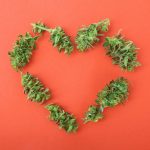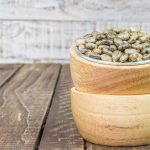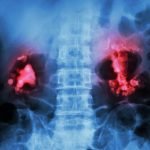Binge Drinking Lowers Working Memory in Adolescents
Node Smith, ND
A recent study from Columbia University Irving Medical Center notes that binge drinking impairs working memory in the teenaged brain.1 This study may help explain why adolescents who binge drink are 15 times as susceptible to alcoholism as adults.
Brains of adolescents known for susceptibility to addictive behaviors
It is well known that the brains of youth (teens) are at a developmental stage that is more vulnerable to addictive behaviors, or that their brains can more easily be “switched on” to an addictive behavior, such as alcohol use. The current study is trying to figure out what these switches are, and how they are influenced by binge drinking.
Research in the area of binge drinking
Much of the research in the area of binge drinking has used mice models, in which forced intoxication has been used through vapor inhalation or alcohol injection. This study allowed the mice to drink voluntarily.
The mice are given alcohol every other day during an age range that is developmentally similar to human adolescence. Some mice drink a lot, and some very little – just like what is seen in humans.
The results of binge drinking in adolescent mice is very similar to what is seen in humans as well. Binge drinking young mice become heavier drinking adult mice.
This area of the brain does not mature fully in humans until their 20s
The most significant changes within the brains of the mice occurred in the equivalent of the human prefrontal cortex (PFC). This area of the brain is crucial in planning, and maintenance of working memory and attention. It is an area that does not mature fully in humans until their 20s.
Inhibited PFC activity
In the binge-drinking mice, the PFC activity was inhibited, which was seen to impact working memory centers. These findings parallel human imaging studies of alcoholics and binge drinkers. This may be part of why adolescent binge drinkers tend to have memory problems.
Source:
- Salling MC, Skelly MJ, Avegno E, et al. Alcohol Consumption during Adolescence in a Mouse Model of Binge Drinking Alters the Intrinsic Excitability and Function of the Prefrontal Cortex through a Reduction in the Hyperpolarization-Activated Cation Current. J Neurosci. 2018;38(27):6207-6222.
Copyright: <a href=’https://www.123rf.com/profile_vadymvdrobot’>vadymvdrobot / 123RF Stock Photo</a>
 Node Smith, ND, is a naturopathic physician in Portland, OR and associate editor for NDNR. He has been instrumental in maintaining a firm connection to the philosophy and heritage of naturopathic medicine among the next generation of docs. He helped found the first multi-generational experiential retreat, which brings elders, alumni, and students together for a weekend camp-out where naturopathic medicine and medical philosophy are experienced in nature. Four years ago he helped found the non-profit, Association for Naturopathic ReVitalization (ANR), for which he serves as the board chairman. ANR has a mission to inspire health practitioners to embody the naturopathic principles through experiential education. Node also has a firm belief that the next era of naturopathic medicine will see a resurgence of in-patient facilities which use fasting, earthing, hydrotherapy and homeopathy to bring people back from chronic diseases of modern living; he is involved in numerous conversations and projects to bring about this vision.
Node Smith, ND, is a naturopathic physician in Portland, OR and associate editor for NDNR. He has been instrumental in maintaining a firm connection to the philosophy and heritage of naturopathic medicine among the next generation of docs. He helped found the first multi-generational experiential retreat, which brings elders, alumni, and students together for a weekend camp-out where naturopathic medicine and medical philosophy are experienced in nature. Four years ago he helped found the non-profit, Association for Naturopathic ReVitalization (ANR), for which he serves as the board chairman. ANR has a mission to inspire health practitioners to embody the naturopathic principles through experiential education. Node also has a firm belief that the next era of naturopathic medicine will see a resurgence of in-patient facilities which use fasting, earthing, hydrotherapy and homeopathy to bring people back from chronic diseases of modern living; he is involved in numerous conversations and projects to bring about this vision.









